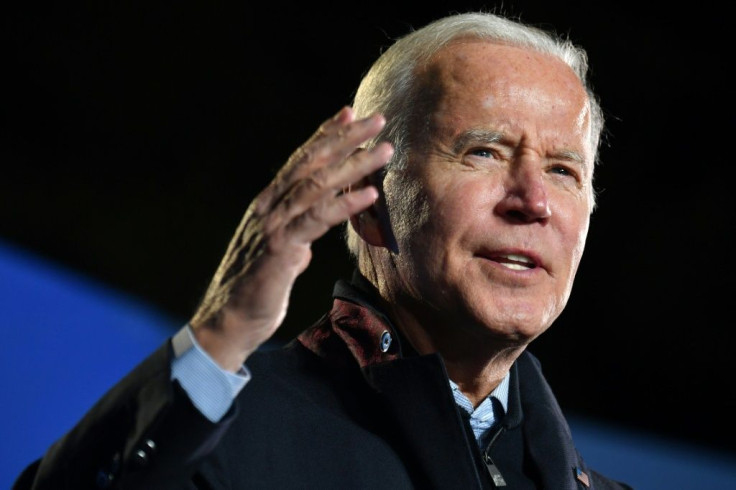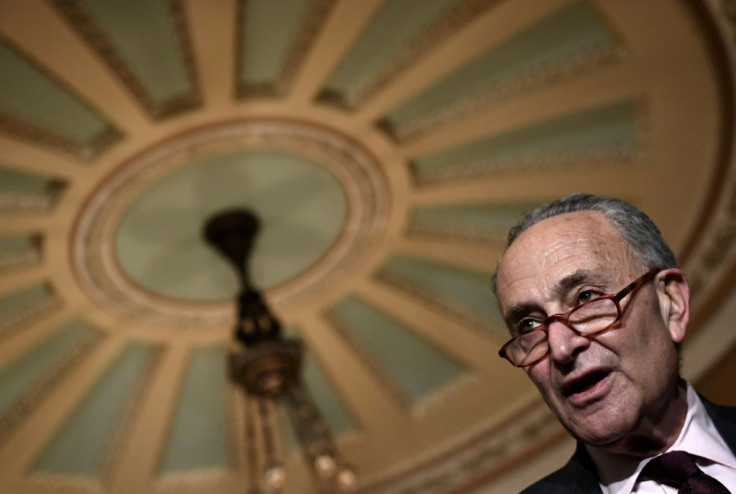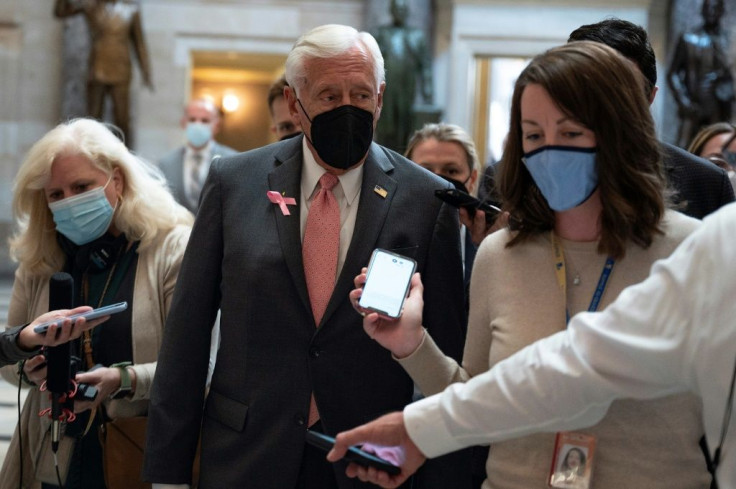Democrats Offer Mixed Messages As Biden Presses Domestic Agenda
The White House and Democratic congressional leaders raced Wednesday to resolve lingering disputes on their giant social spending plan before President Joe Biden flies overseas -- although several lawmakers signaled that a deal by day's end looked impossible.
House Speaker Nancy Pelosi wrote to colleagues that Biden's domestic agenda was moving "closer to passing," but a key centrist senator later dismissed a new tax on billionaires to help pay for the $1.5-$2 trillion package as a non-starter.
Biden hopes to use passage of the Build Back Better Act as evidence of the United States leading the world on global warming and other issues as he heads to a G20 summit in Rome and United Nations climate gathering in Glasgow.
White House aides were assessing the situation "hour by hour," his spokeswoman Jen Psaki told reporters.

Pelosi, the top House Democrat, has given lawmakers until at least the end of Thursday to ready their final language on the historic bill targeting climate change, child care, pre-school education and health care.
The mammoth package is crucial to another big win Biden had hoped to secure before jetting off to Rome -- a $1.2 trillion infrastructure bill to transform US roads, bridges and broadband access.
The bills are linked because the Democratic left flank in the House is withholding its green light on the Senate-passed infrastructure legislation until progressives have seen a final text on Build Back Better, their top priority.

Weeks of negotiations between the party's left and center have yet to produce consensus even on the price tag of the social welfare package, let alone the provisions it should include or how to pay for it.
Biden has no votes to spare in the 50-50 split Senate so any Democrat can tank any bill, throwing Biden's domestic agenda into disarray.
In a tweet Wednesday evening, the president urged lawmakers to "bring these bills over the finish line."
"Universal preschool. Historic climate investments. Lower health care costs," he wrote, listing the bill's major goals.
"They're all within our reach."

Biden met Tuesday evening with moderate senators Kyrsten Sinema and Joe Manchin, both holdouts on Build Back Better who have spent weeks chiseling the original $3.5 trillion top line to somewhere nearer half that.
There was no significant breakthrough, but a White House official said the trio "made progress on top of what has been accomplished in recent days," and the senators were in follow-up meetings Wednesday with Biden aides.
"The speaker has said that 90 percent of the Build Back Better Act is done and we're just waiting on the final agreement from the two senators, who haven't agreed on everything yet and we need them," Pramila Jayapal, leader of the 96-member Congressional Progressive Caucus, told MSNBC.
Democrats have yet to reach consensus on a slew of issues in the Build Back Better package, including taxes, paid family leave, prescription drug pricing and expanding health care coverage for elderly and low-income Americans.
"There's just huge pieces of this that are not nailed down. So each time I hear 'Well, it's almost done,' I don't know what the hell people are talking about," Democratic Senator Jeff Merkley told NBC.
In a last-second scramble to pay for Biden's plans, Senate Democrats proposed a billionaires' tax that would target roughly 700 tycoons with over $1 billion in assets or $100 million in income for three consecutive years.
The collective fortune of America's billionaires soared by 70 percent during the pandemic, according to the liberal-leaning Institute for Policy Studies, from almost $3 trillion in March 2020 to more than $5 trillion by October 15 this year.
Under the proposal, according to US media, billionaires would begin paying capital gains taxes of 23.8 percent on the appreciation in value of tradeable assets such as stocks and bonds, regardless of whether they are sold.
The tax would bring in an estimated $300 billion, around a fifth of the expected compromise cost of Build Back Better.
But the idea appeared dead on arrival as Sinema and Richie Neal, the chairman of the powerful House Ways and Means Committee, indicated they were against it and Manchin explicitly dismissed it as divisive.
There were signs of light, however, with tentative agreement among the Democrats, who control Congress and the White House, on a minimum 15 percent corporate tax on the profits of companies clearing more than $1 billion a year.
Nearly 200 companies would be subject to the tax, another key revenue raiser that could generate as much as $400 billion, its backers say. Crucially, Manchin and Sinema are both on board.
© Copyright AFP 2024. All rights reserved.





















